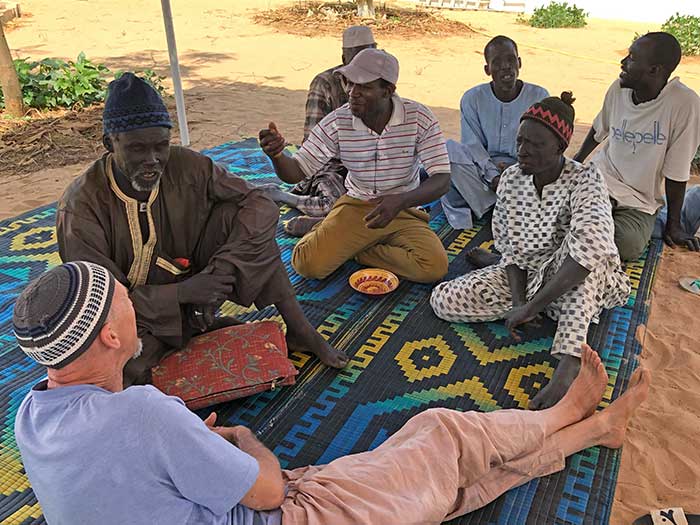“It’s like you are there with them, watching it happen.”
What would cause a 60-year-old Muslim man to say this about narrative passages in the Bible?
A retired building inspector, Amadou reads French reasonably well. Like almost all Wolof, he is a committed Muslim. What he knows about Islam he has learned aurally ― by hearing. For over five decades, he’s listened to sermons at the mosque, heard Muslim leaders preach and teach on the radio (and now the Internet), and talked with his Muslim friends, family and neighbors.

Like most West African Muslims, he believes the Bible has been changed and “corrupted.” Therefore, they cannot accept the Bible with confidence ― the “corrupted” passages might deceive Muslims and lead them away from Islam’s “righteous path.”
Amadou can read the Bible in his mother tongue, Wolof. But his reading is slow, difficult and frustrating to him.
Yet when I read narrative passages from the Bible in Wolof, he will listen and listen. Sometimes I stop and close the book we are reading, and he will ask, “What are you doing? I’m not tired of listening yet.”
One of Amadou’s “It’s like you are there watching it happen” comments came as I read Genesis 31. Jacob’s action-packed attempt to flee his father-in-law, Laban, really caught Amadou’s attention, and he imagined in his mind how this might look. It came alive to him while hearing it in his mother tongue.
I’ve encouraged Amadou to read Genesis for himself in Wolof. He’s told me he can read it, but it is painfully slow going, and he gets much more out of it when I read to him.
Of course, I can read to only a limited number of men each week. Yet, once someone like Amadou tastes Scripture and finds it appealing, I can put oral Scriptures on a USB drive or an SD memory card. Then, they can listen as often and as long as they like. But, getting them to listen to those first several narrative passages, to give the Bible a chance, is the initial challenge.
The Quran is very different from the Bible. It is not chronological at all and is quite challenging to follow at times. Most Muslims here can’t read the Quran in French or Arabic, and few of those who can take the time to do it.
Little by little, Amadou and other Muslim men are hearing God’s word in their language. Their negative perceptions of the Bible are gradually fading away. If the Holy Spirit is working in their hearts, they will continue to walk toward the truth of God’s Word. But that’s a long, long walk for guys like Amadou, who’ve been devout Muslims for six decades.
Pray with us that more men like Amadou, Abdoul, Musaa, Modou and Harouna will give the Bible a chance to speak truth and life into their complacent and comfortable religious lives.
[advertisements title=”IM vision” site=”National”]